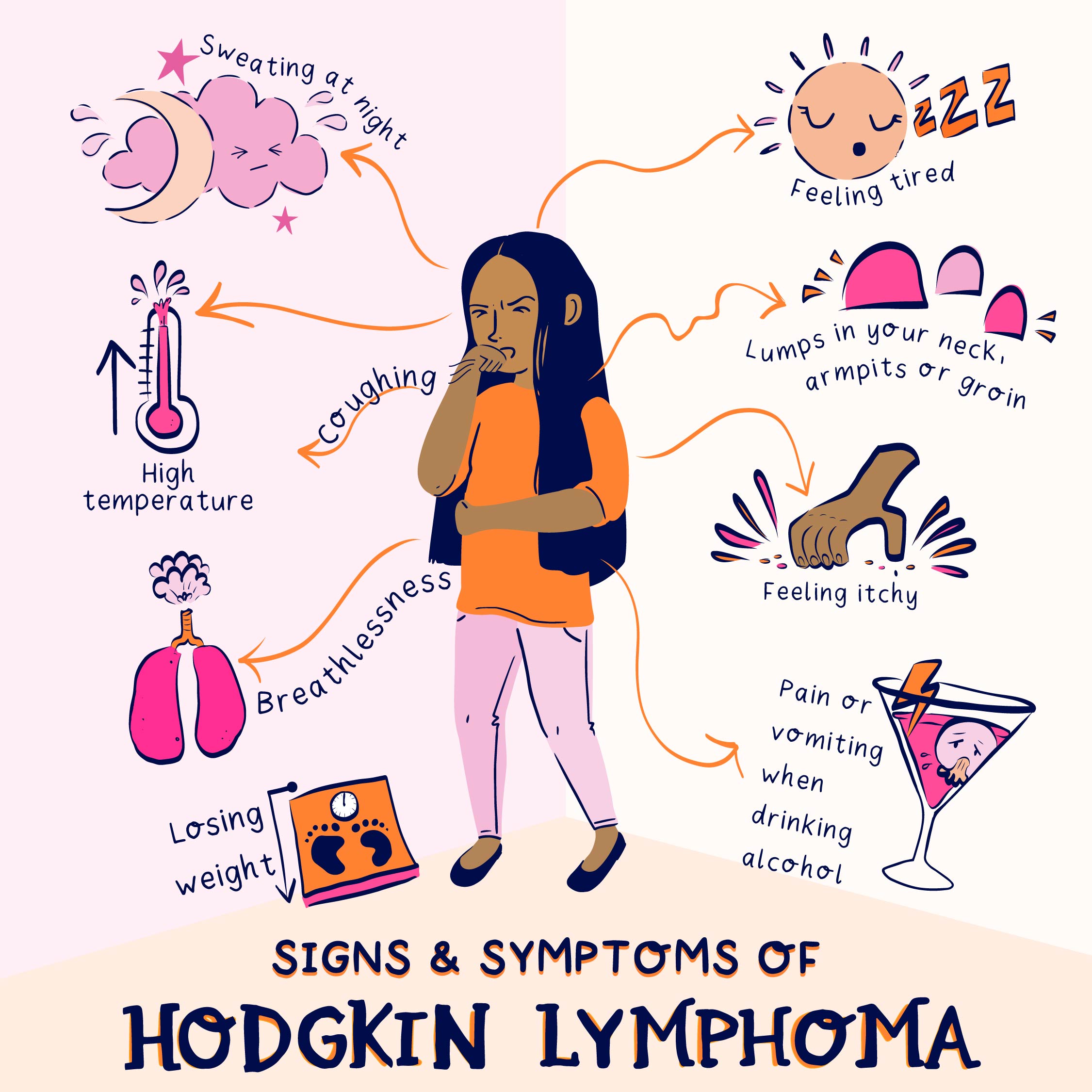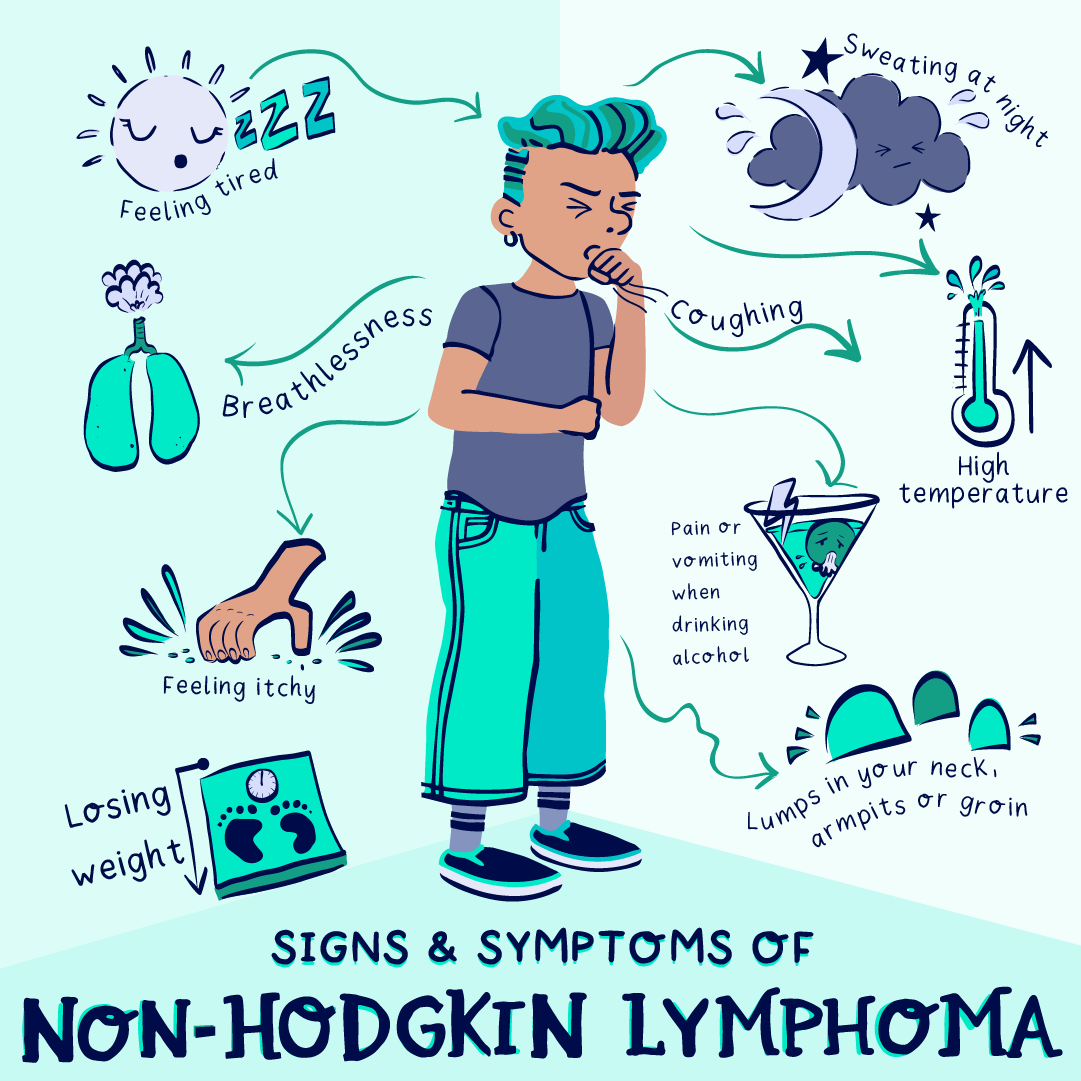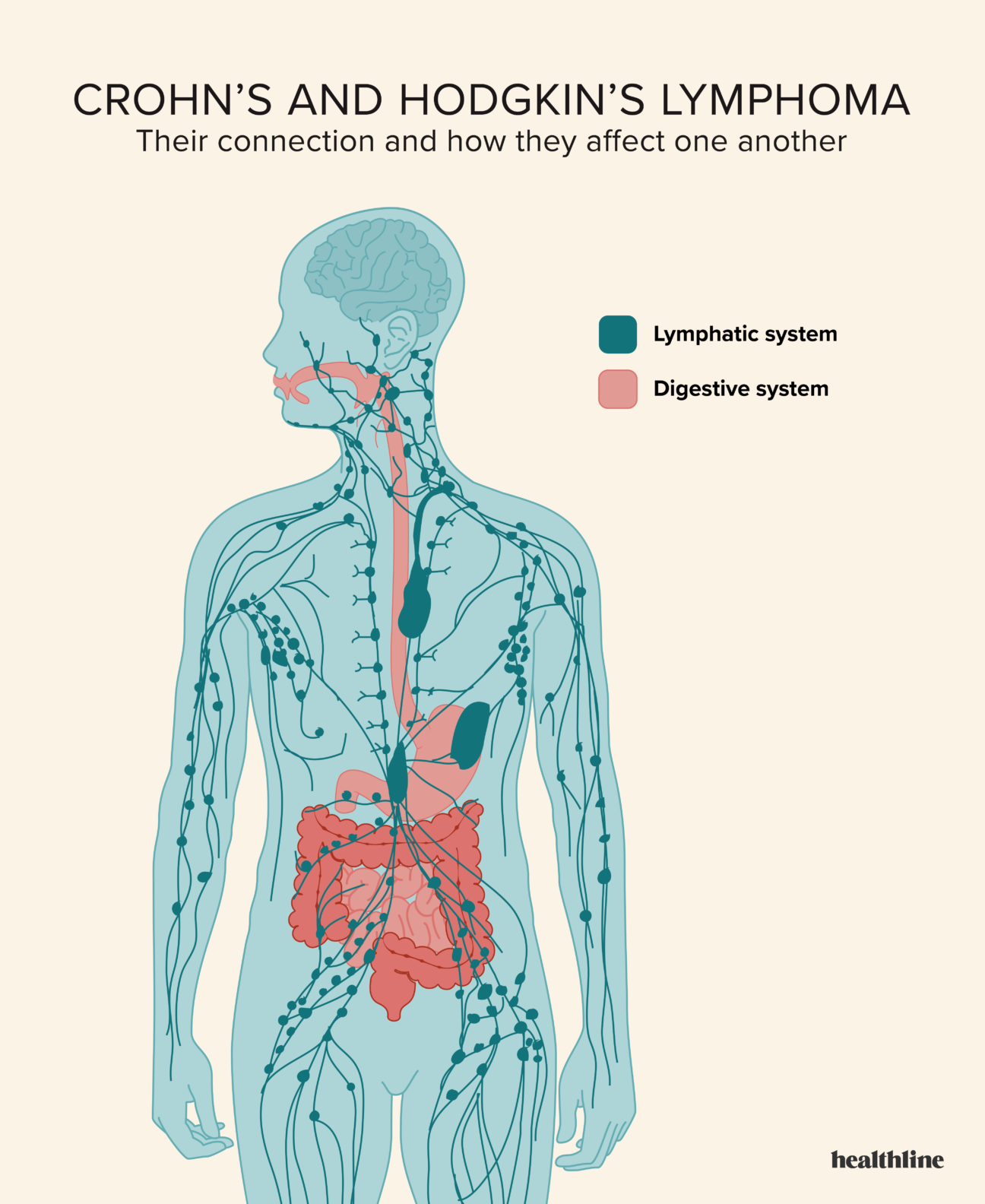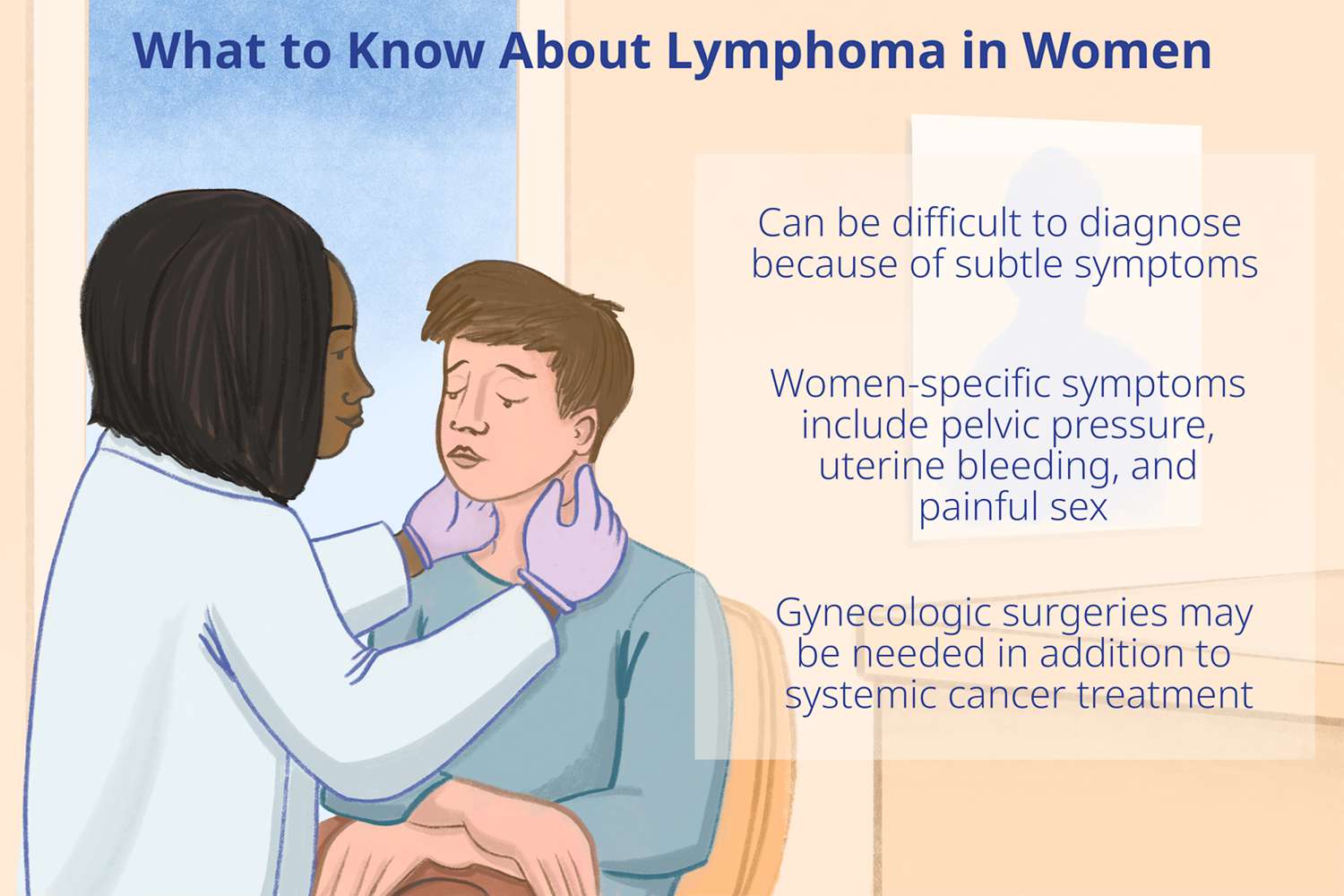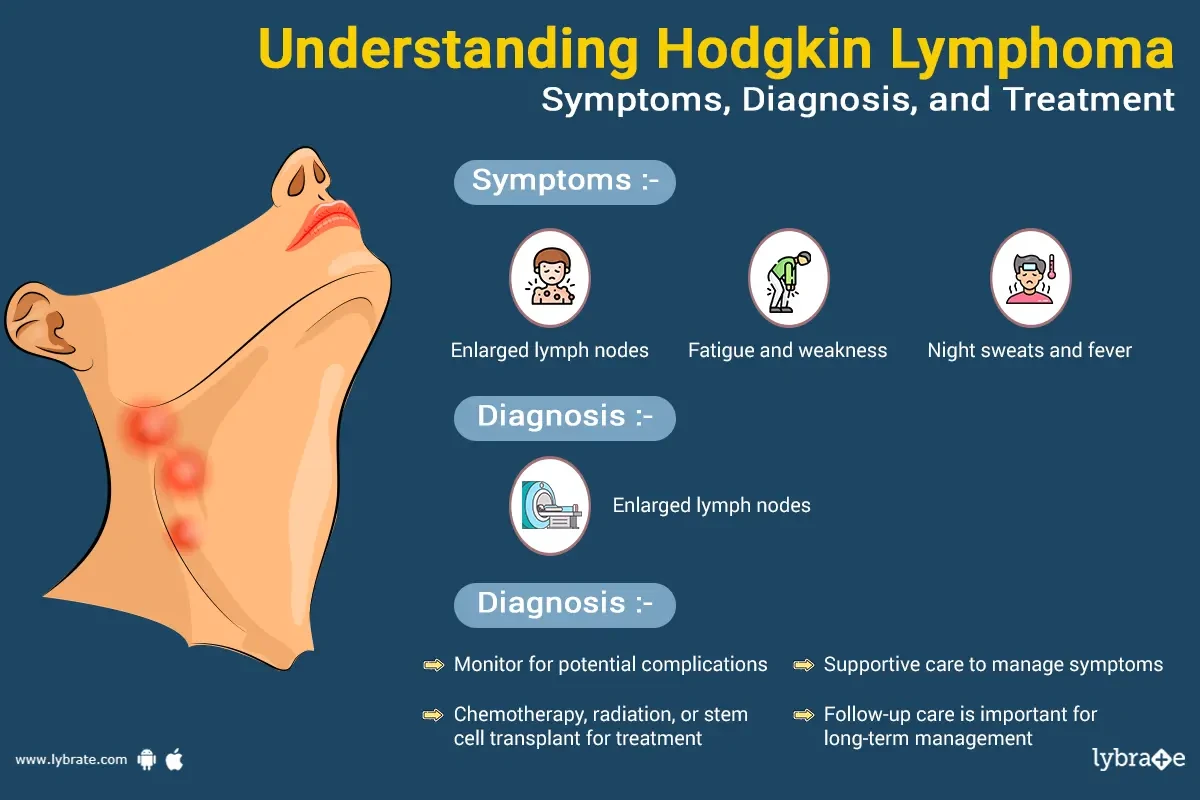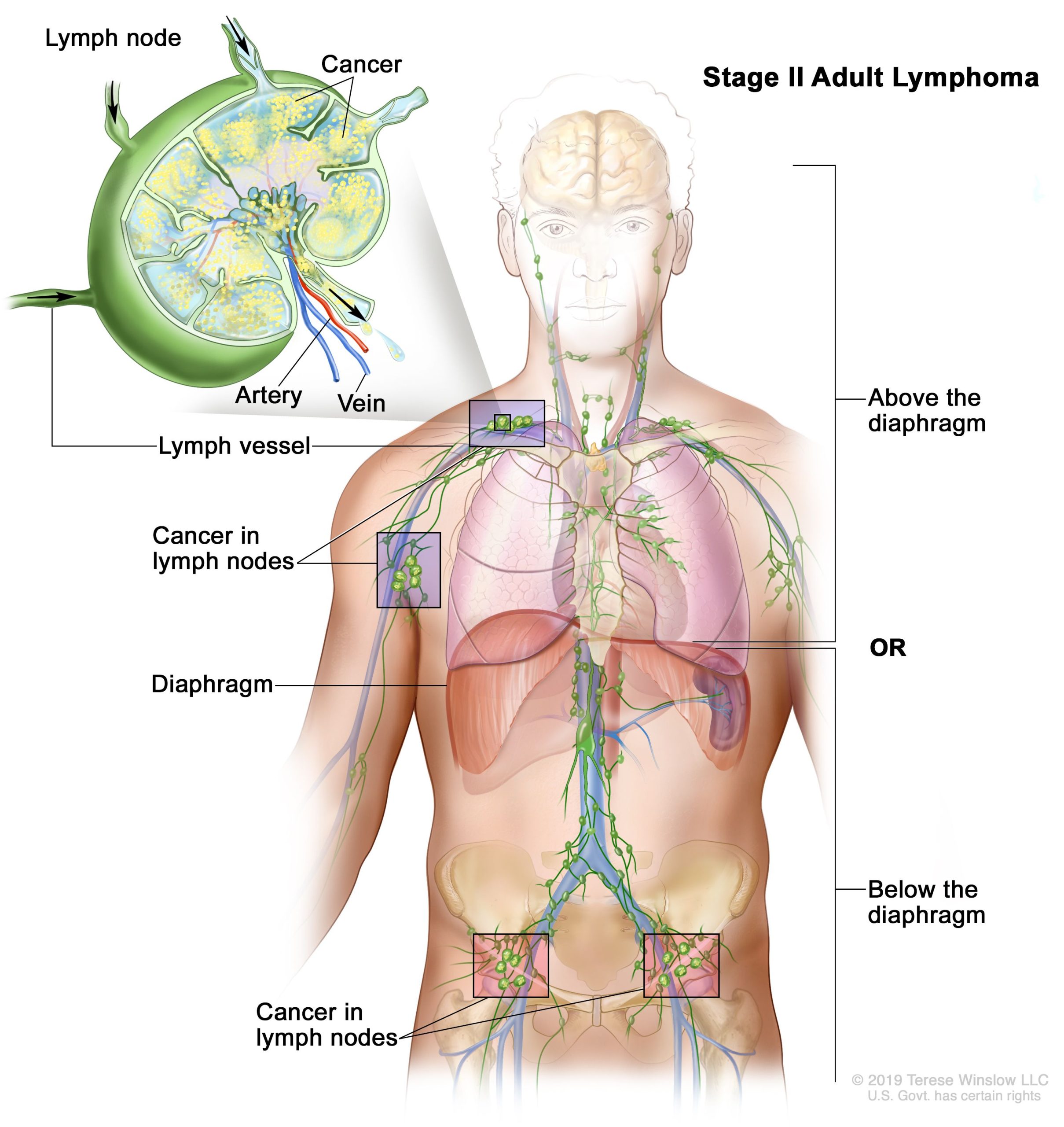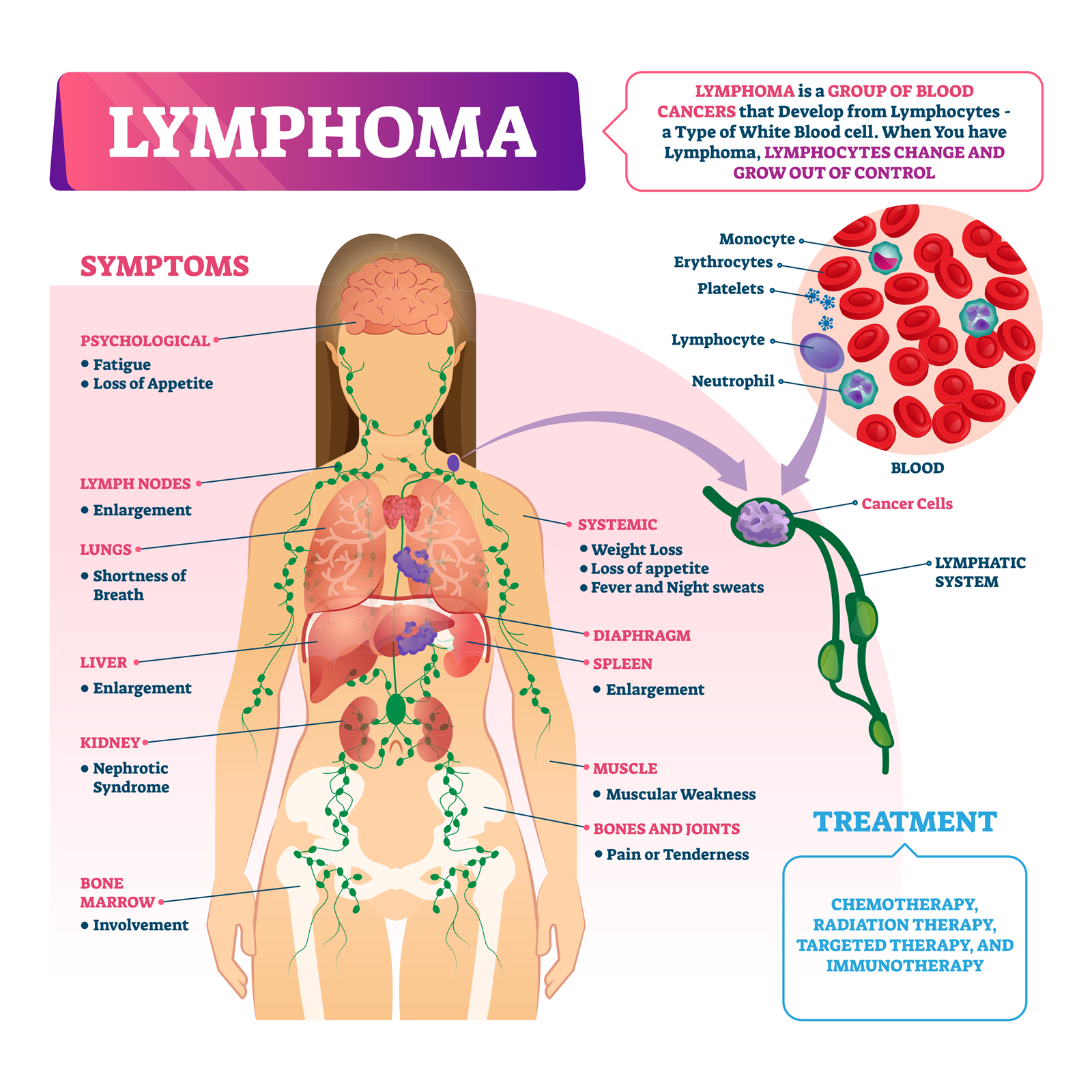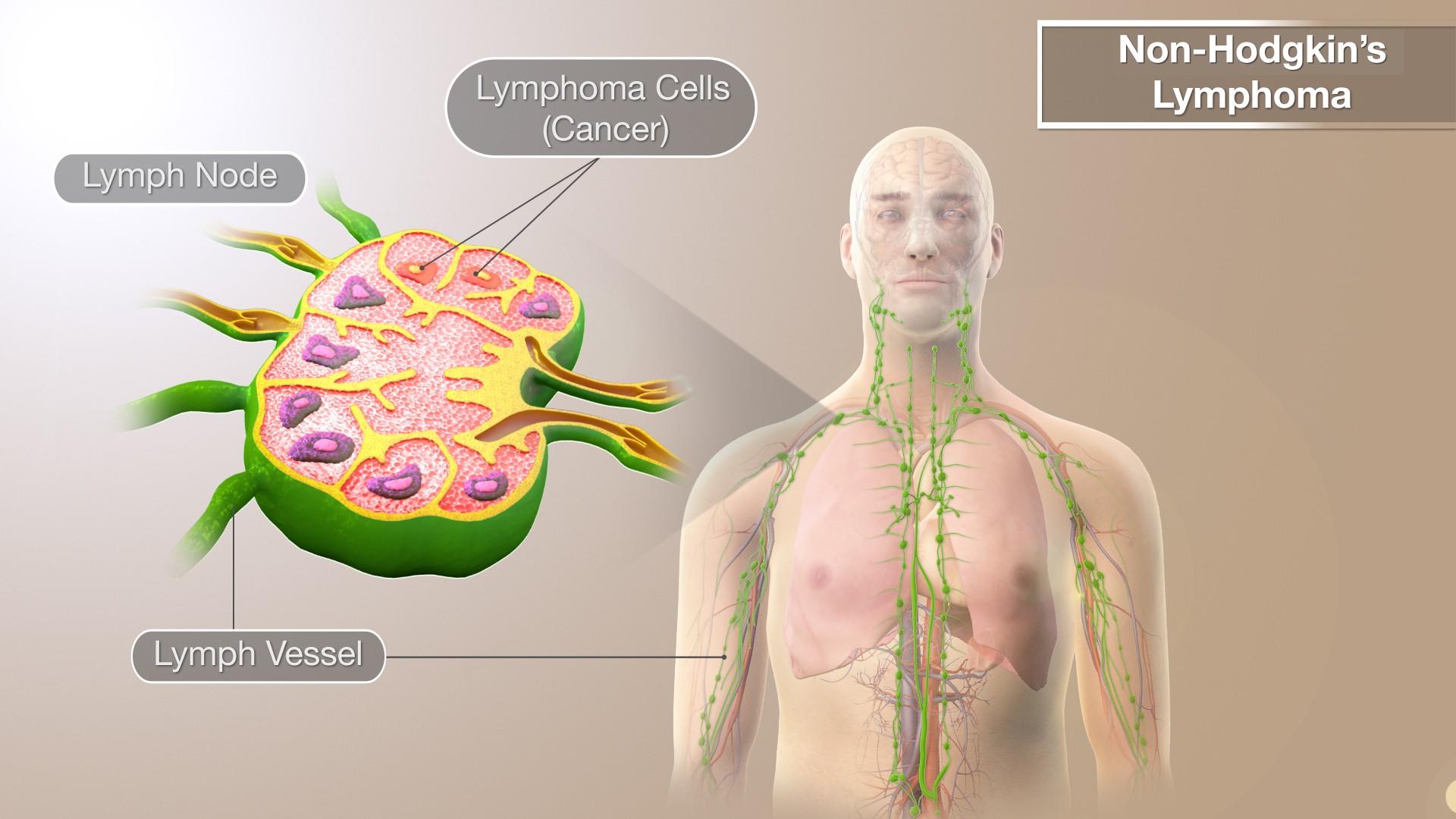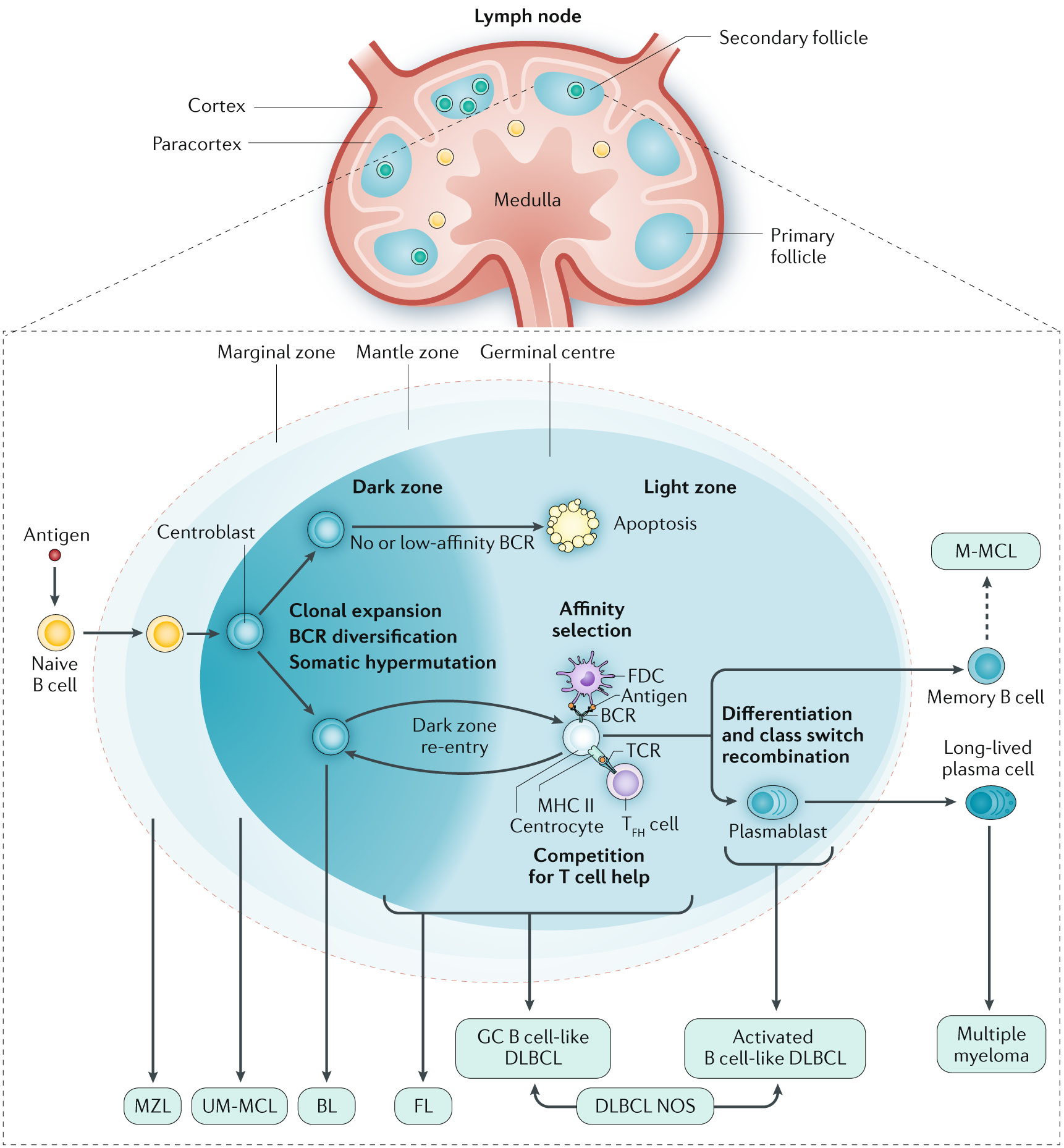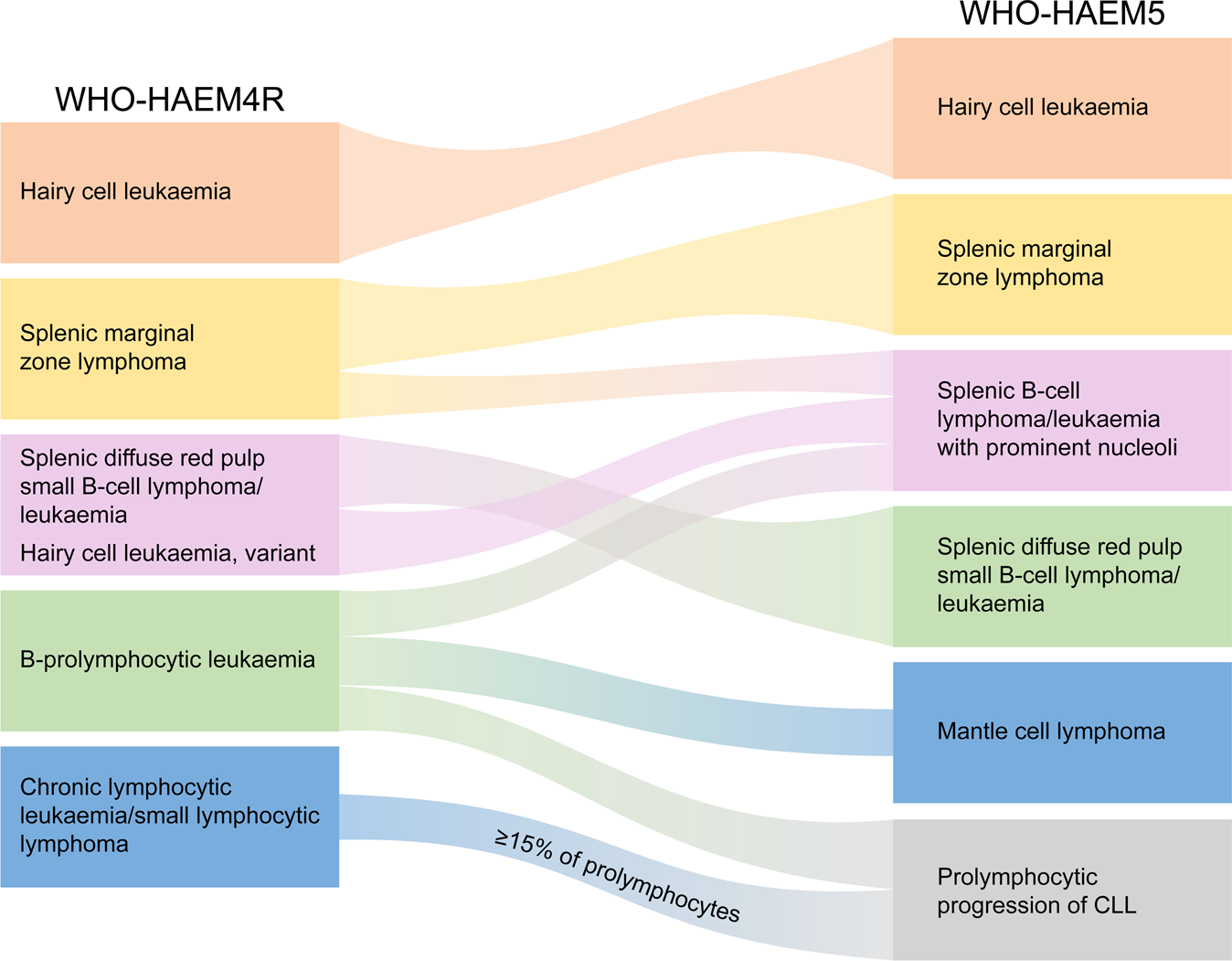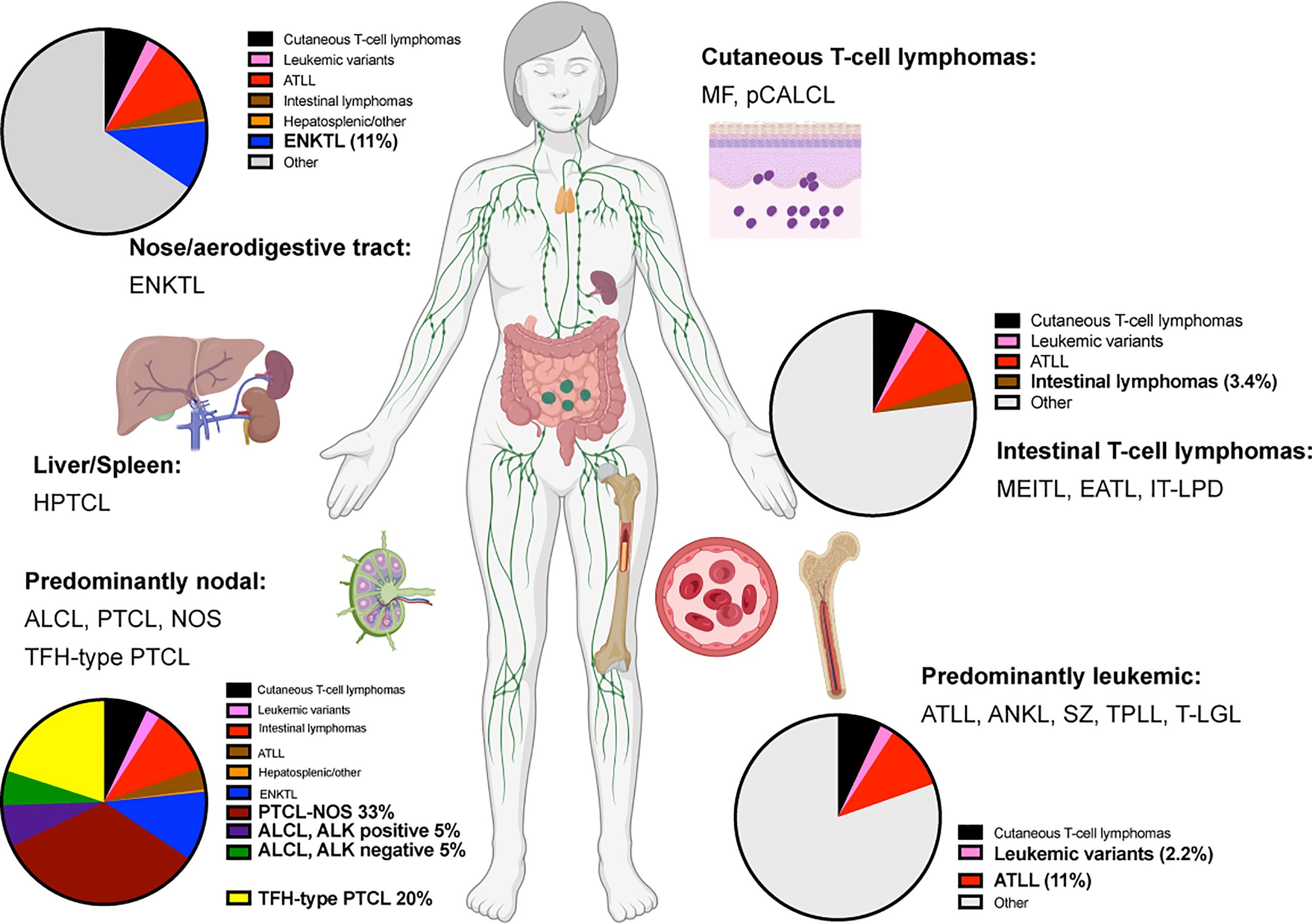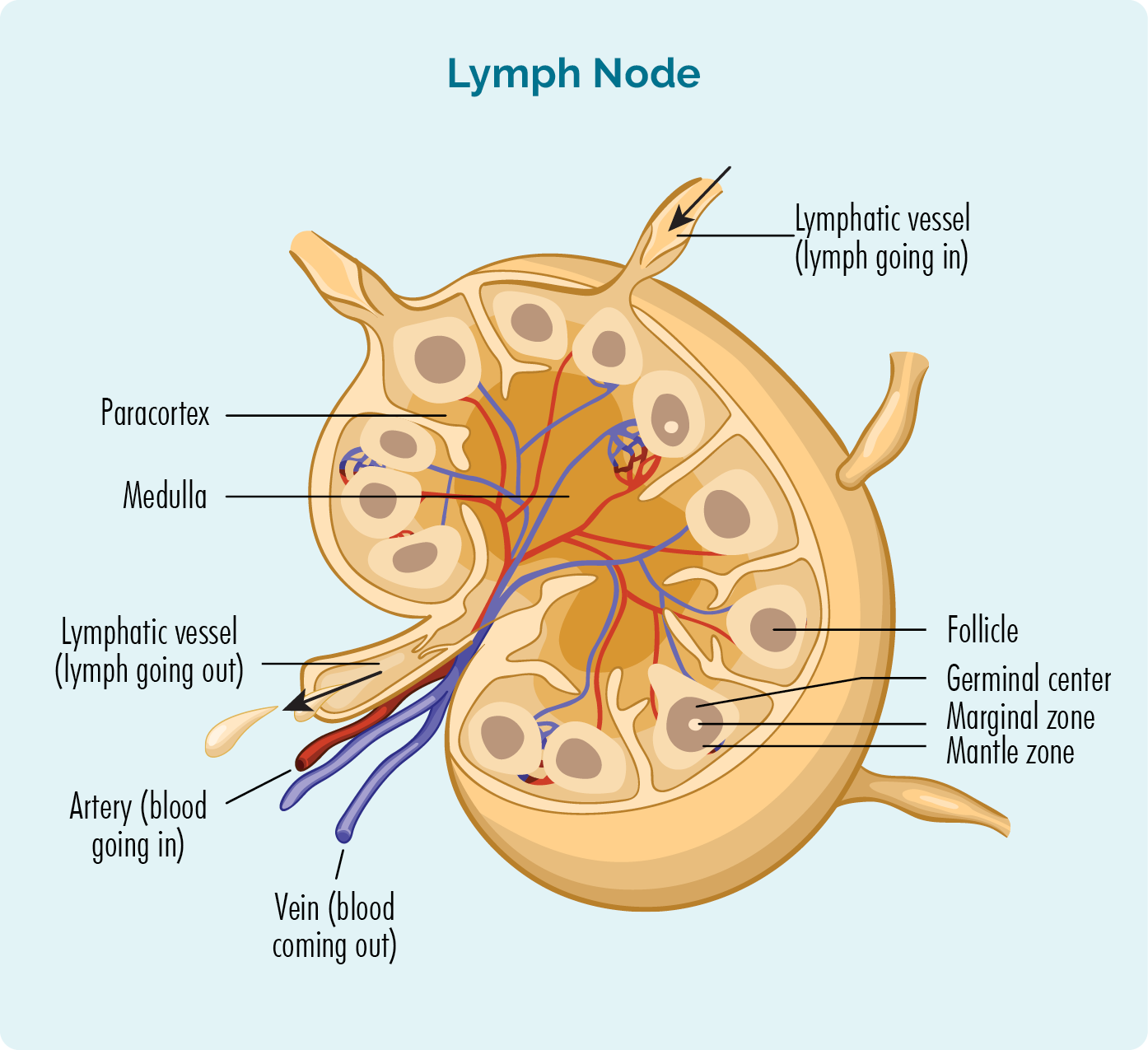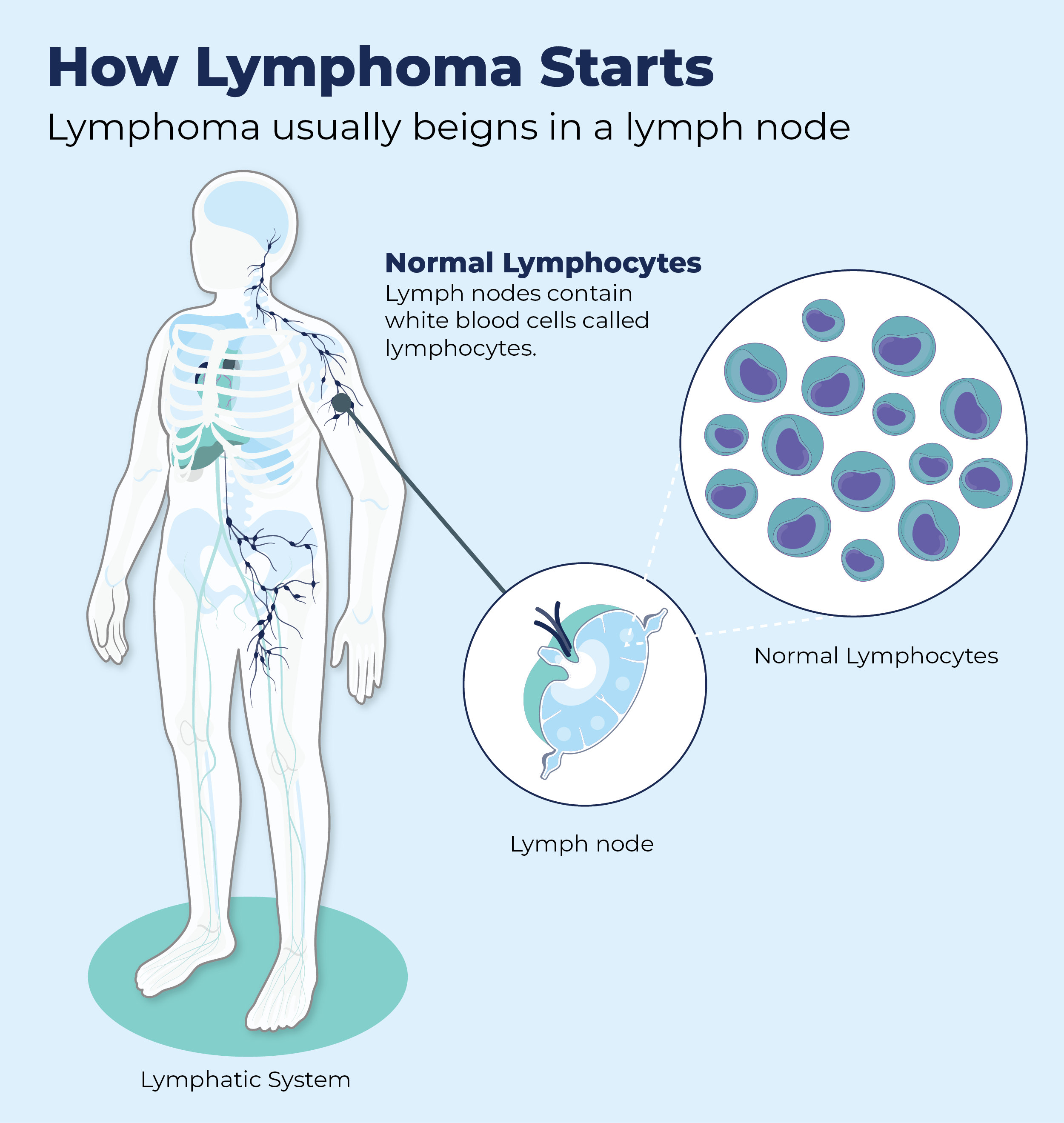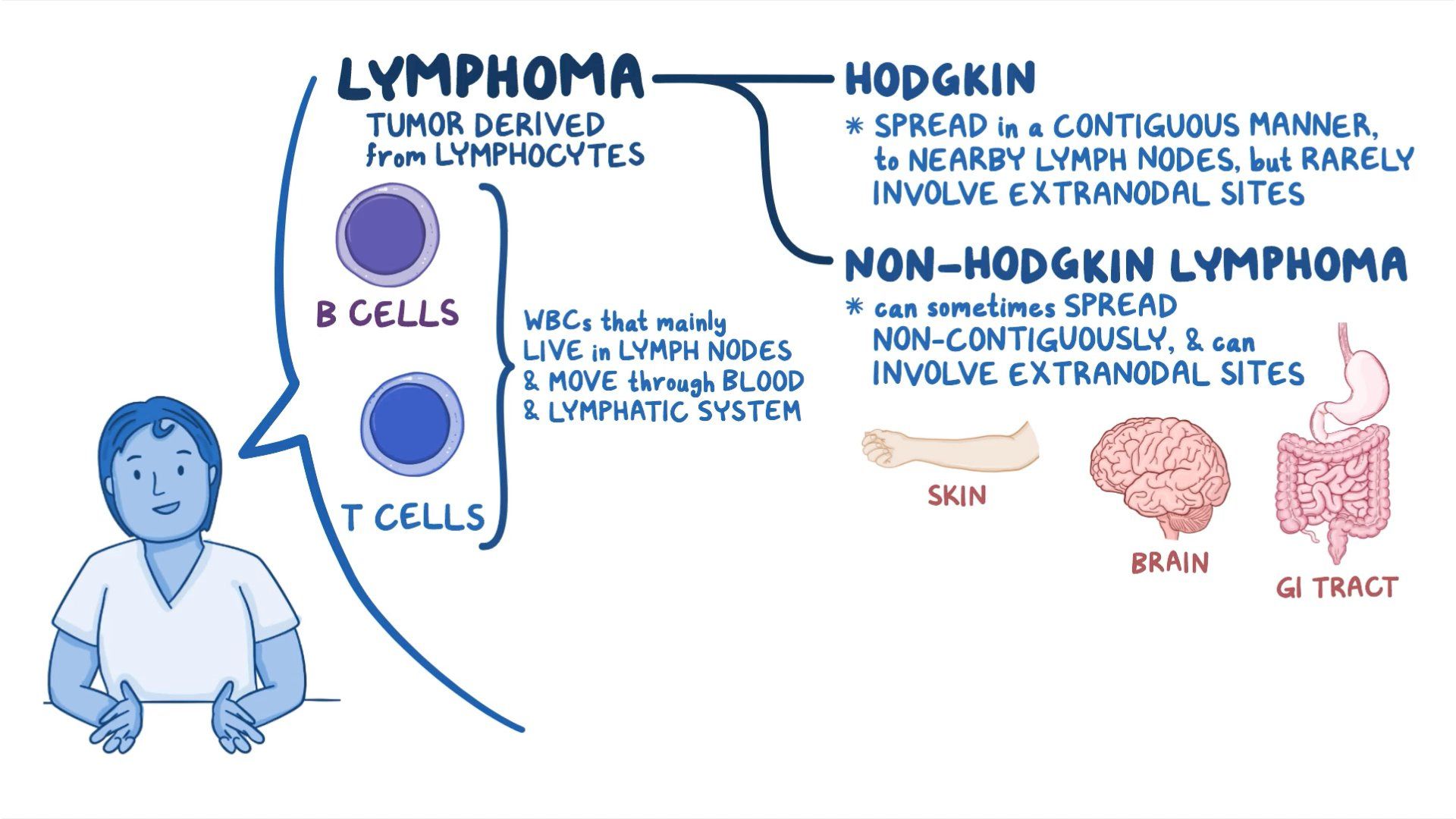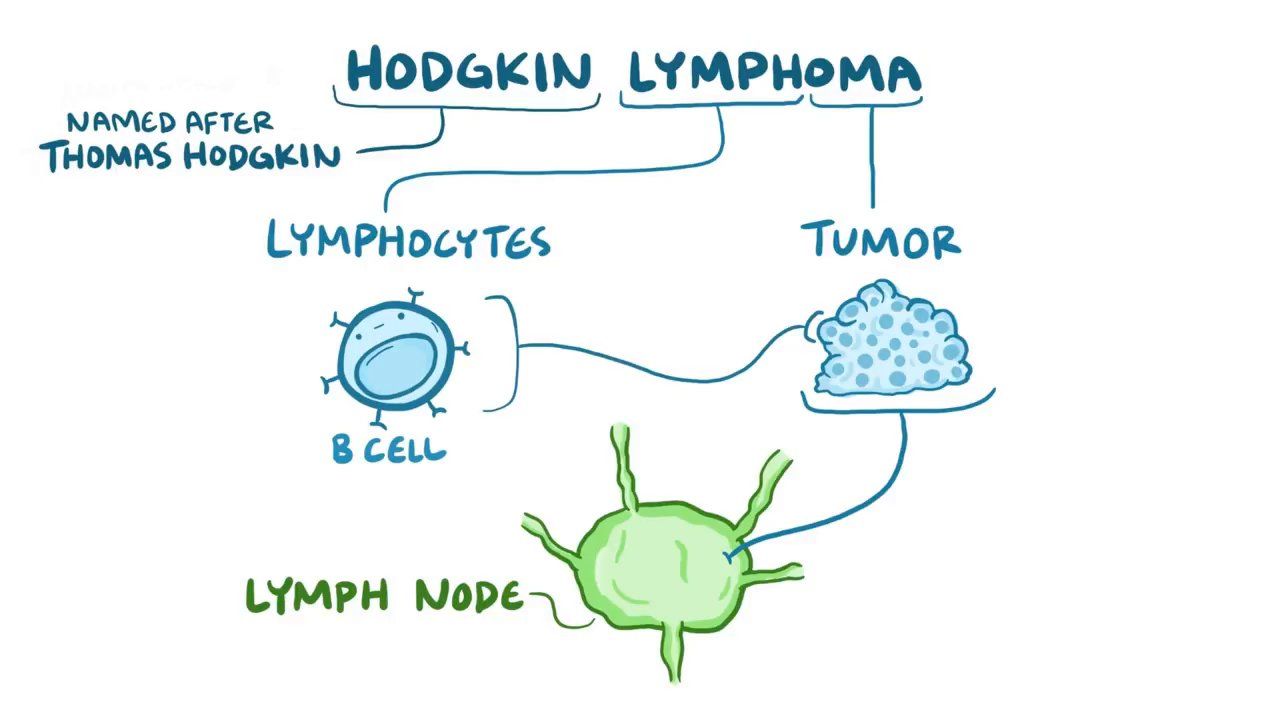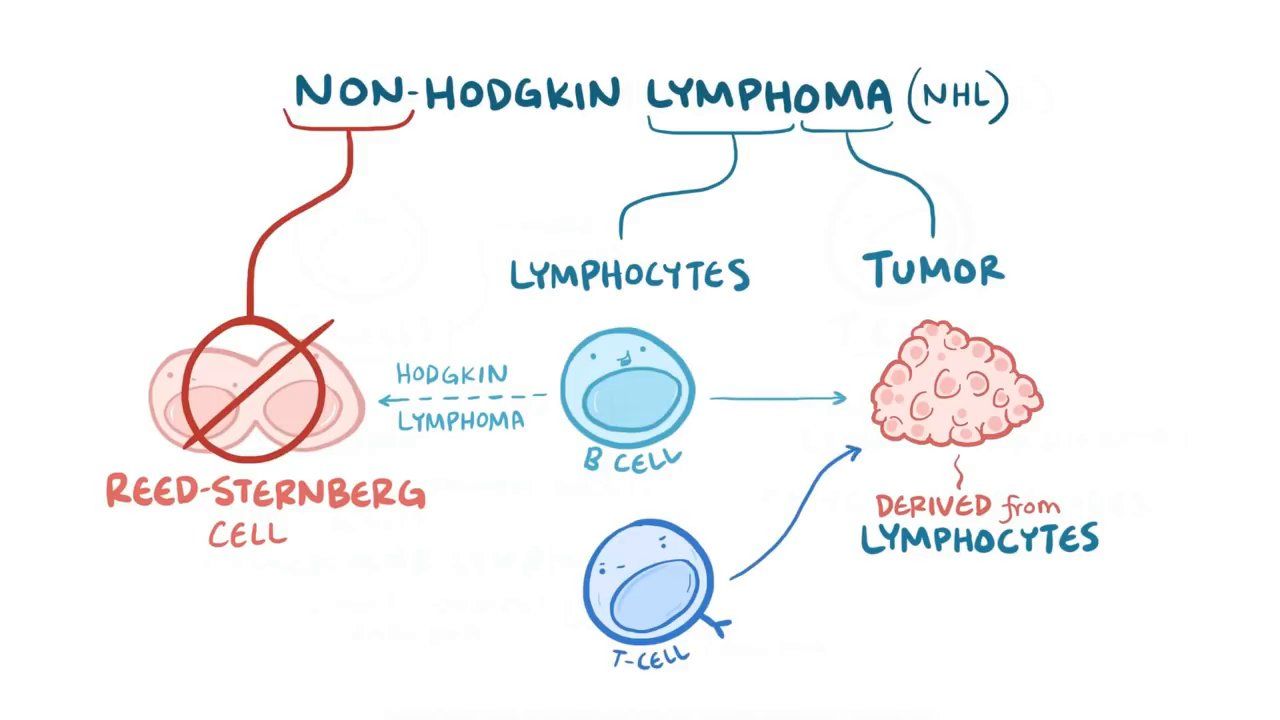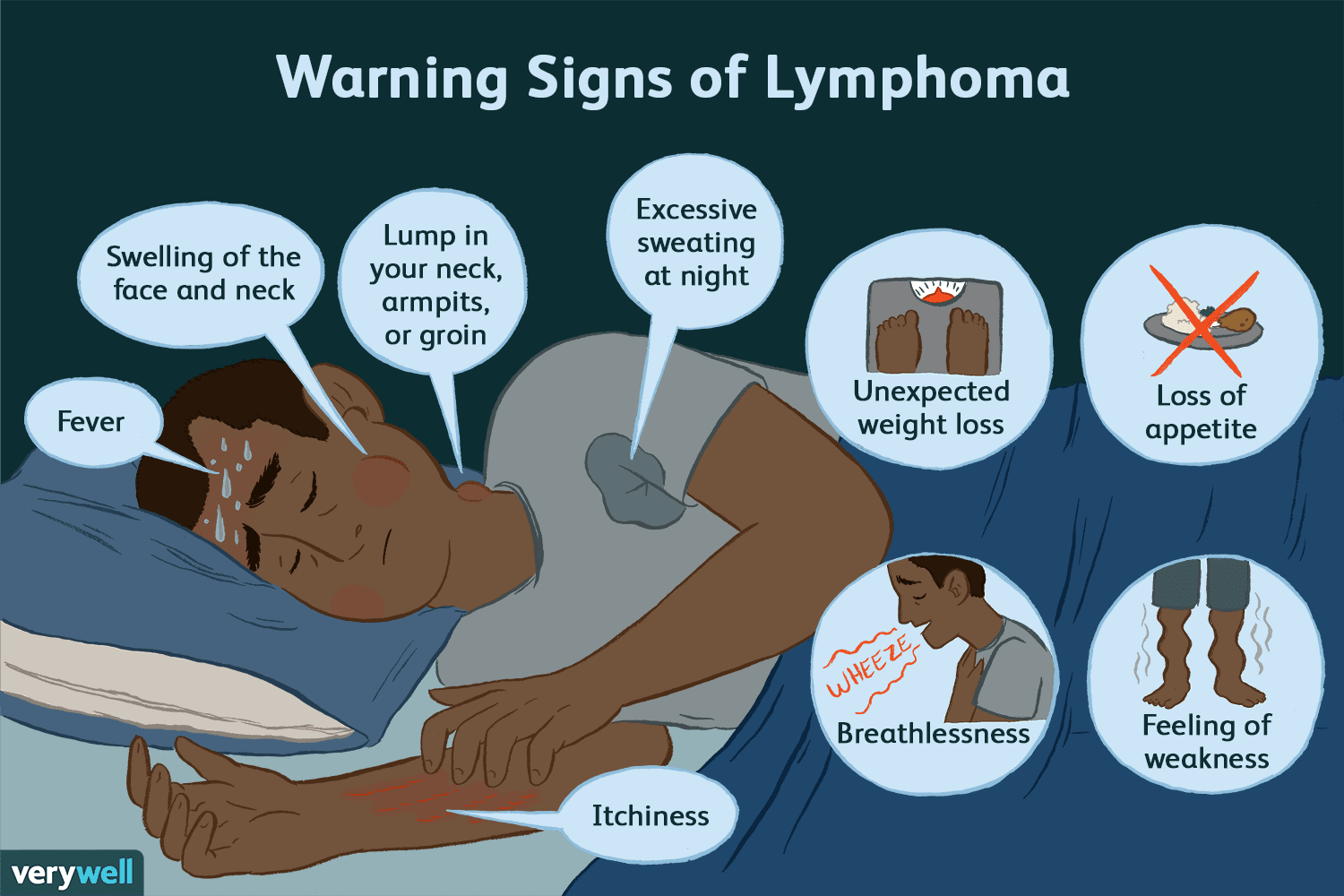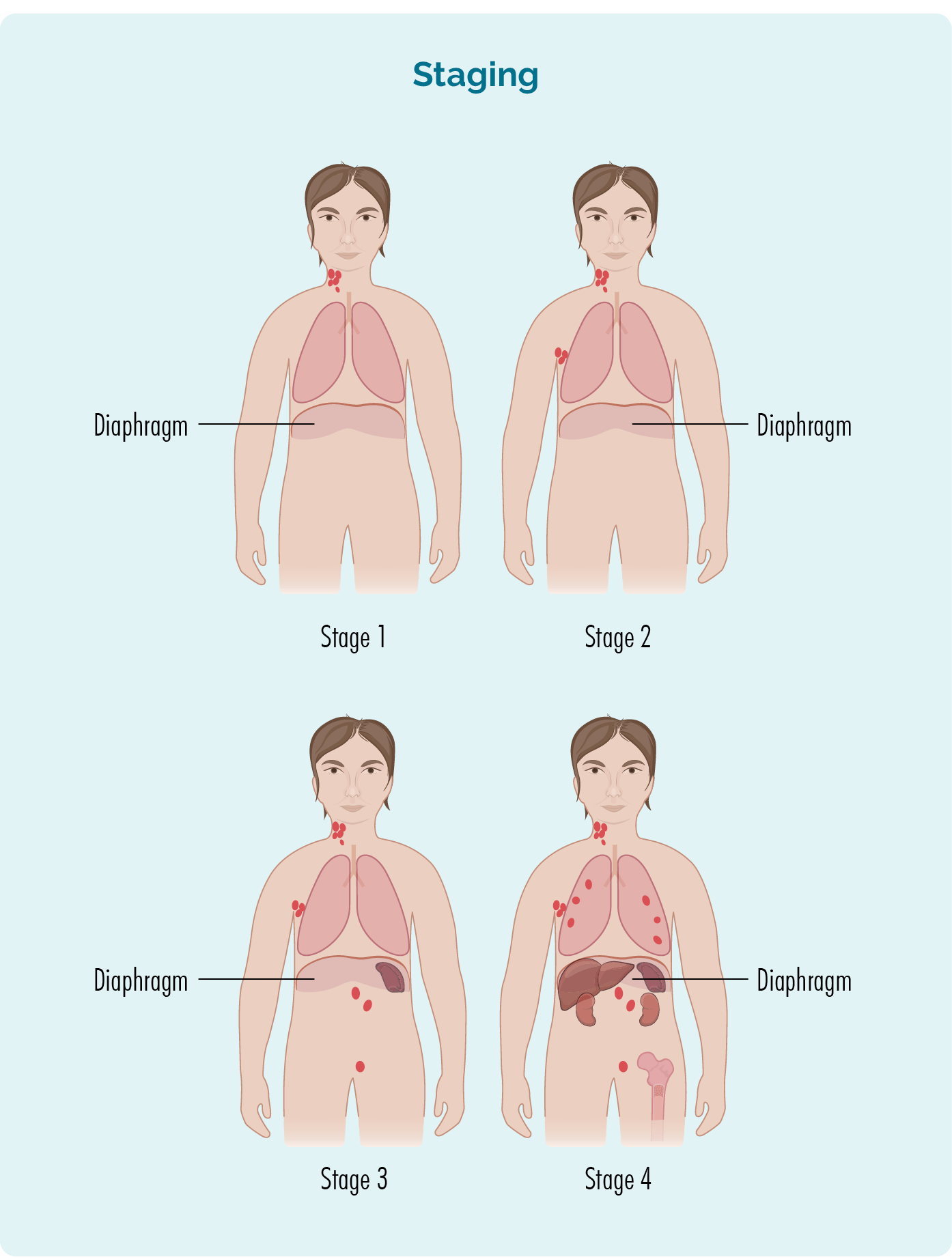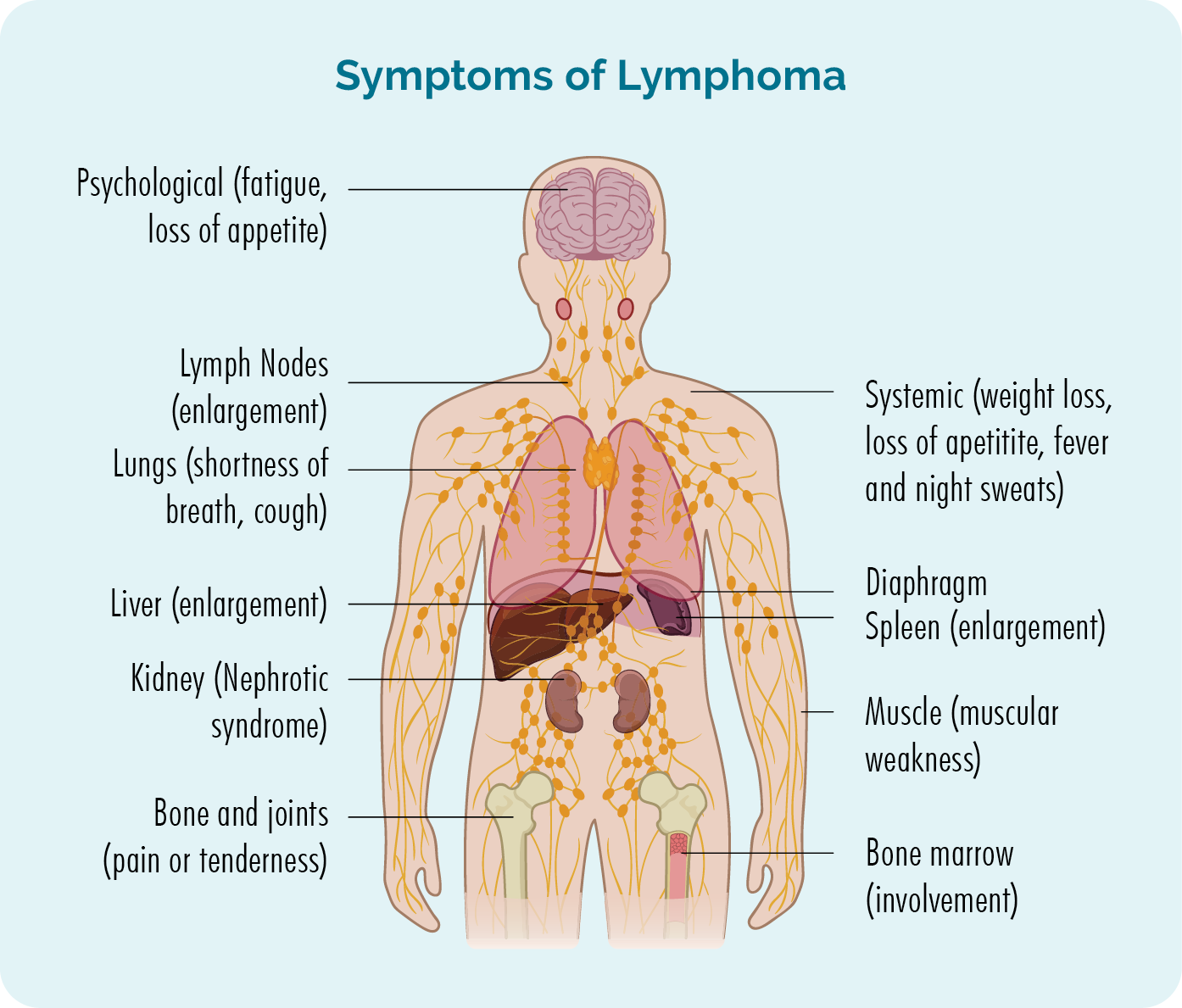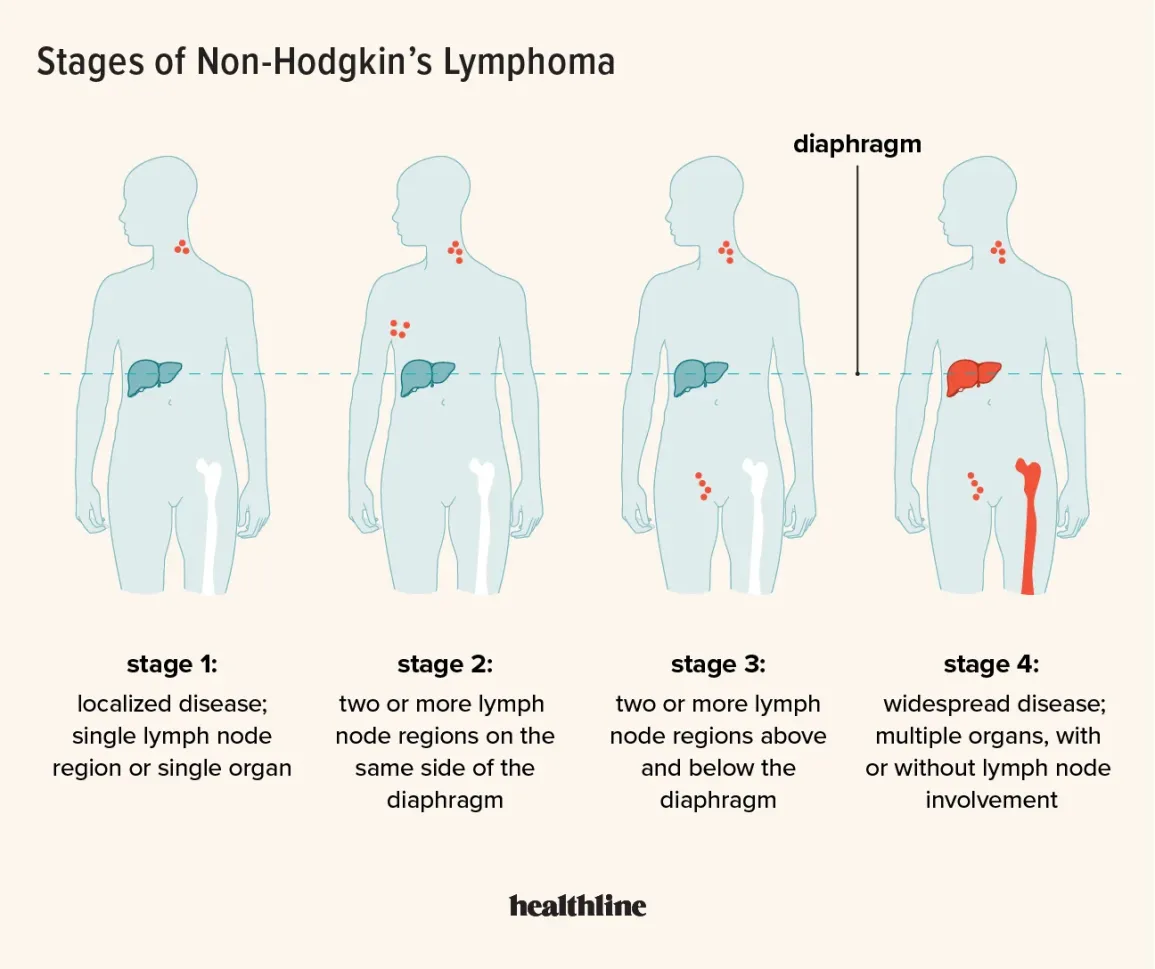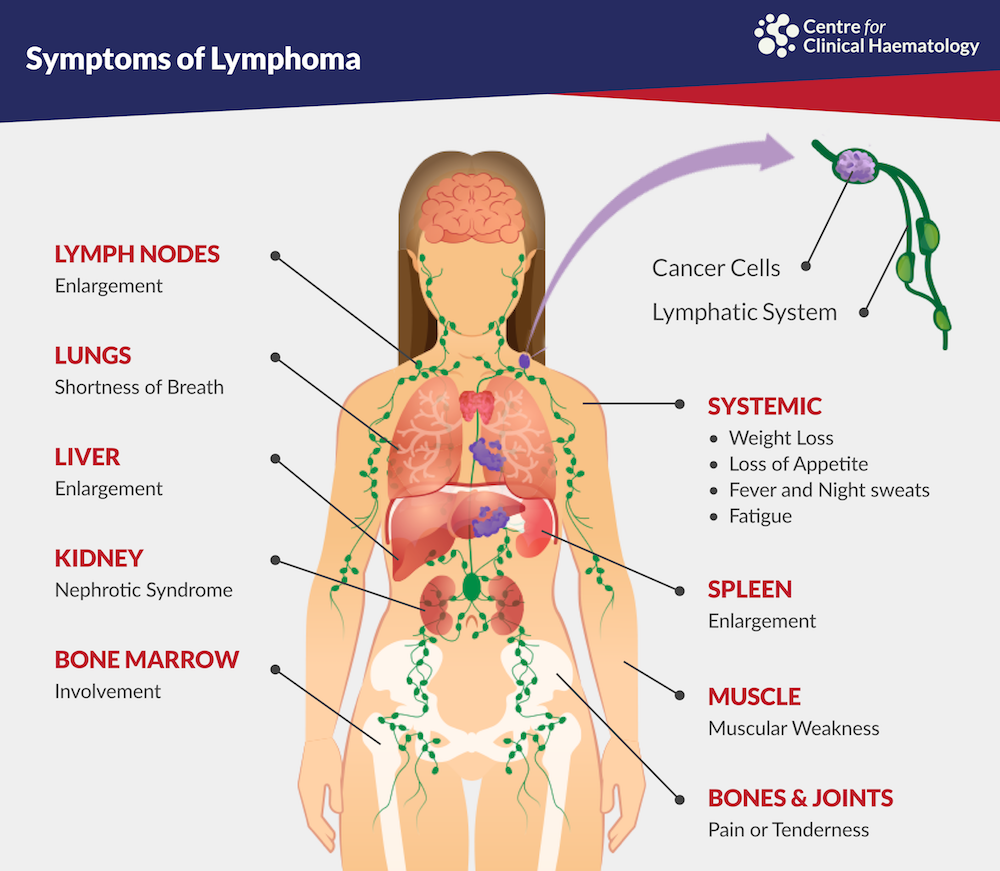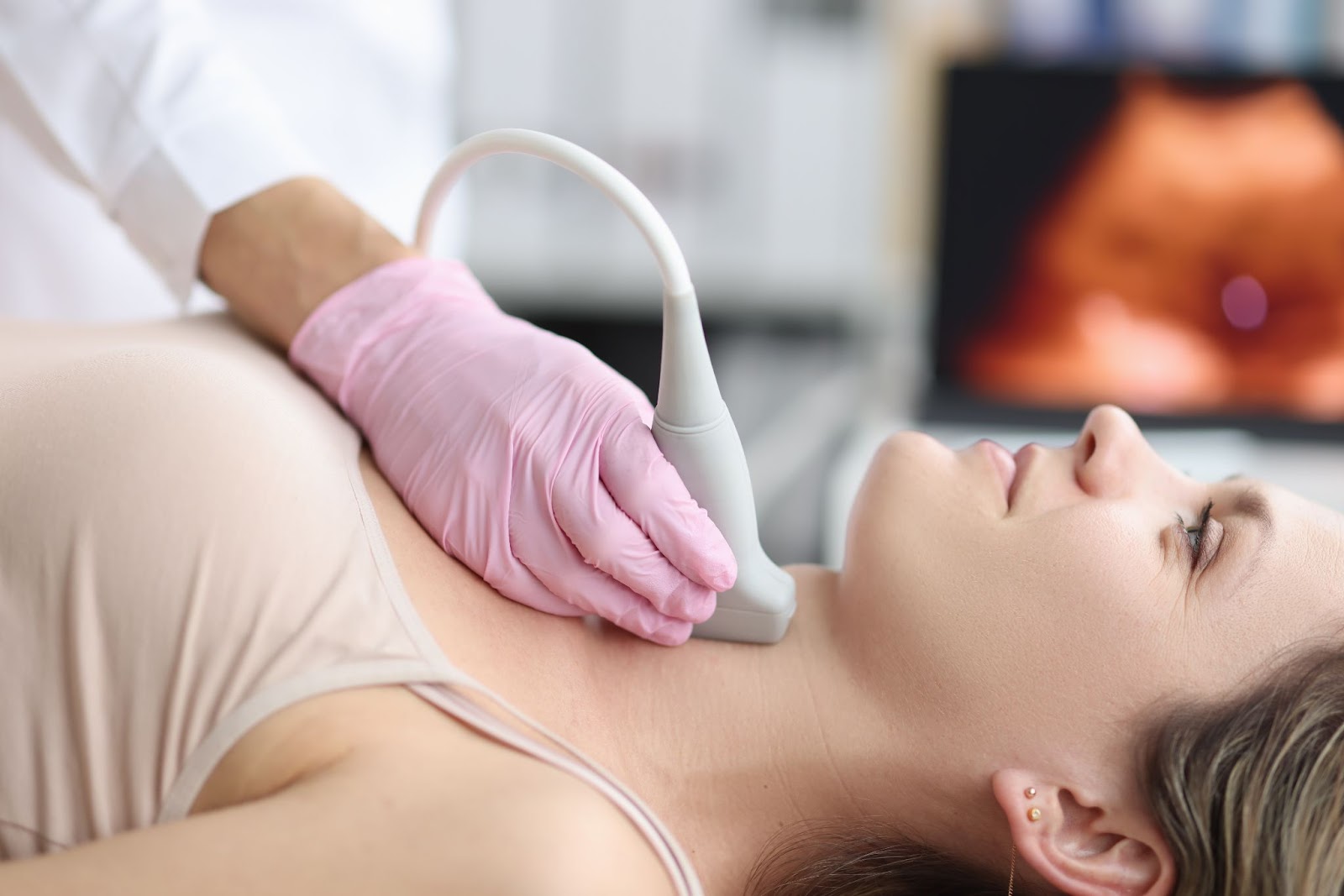
Key facts
- Lymphoma is a type of cancer that affects your lymphatic system.
- There are 2 main types of lymphoma: Hodgkin lymphoma and non-Hodgkin lymphoma.
- Treatment depends on the type of lymphoma.
What is lymphoma?
Lymphoma is a type of cancer that affects your lymphatic system.
Your lymphatic system is part of your immune system. It’s made up of several parts including:
- lymph — a clear fluid that contains white blood cells called lymphocytes, which fight infection
- lymph vessels (small tubes that carry lymph)
- lymph nodes (also sometimes called lymph glands), which filter the lymph
Lymphoma occurs when abnormal lymphocytes in the lymphatic system grow abnormally and multiply.
There are 2 main types of lymphoma:
- Hodgkin lymphoma
- non-Hodgkin lymphoma
What are the symptoms of lymphoma?
Symptoms of lymphoma can include:
- a lump or swelling in a lymph node, often in your neck, armpit or groin
- tiredness or fatigue
- night sweats or fever
- poor appetite
- weight loss
- bruising or bleeding easily
- trouble getting over infections
- pain in your chest or tummy
- a swollen tummy
- a persistent cough
- shortness of breath
- red patches on your skin, rash or itching
What causes lymphoma?
The cause of lymphoma is not fully understood.
The risk of developing lymphoma can be increased by:
- A weakened immune system from conditions such as an inherited immune disorder or an autoimmune disease
- Taking medicines that suppress your immune system.
- Some infections, including Epstein-Barr virus (which causes glandular fever) or HIV infection or AIDS.
- A family history of lymphoma.
- Being exposed to radiation or toxins, including benzene and some agricultural chemicals.
Even if you have one or more of these risk factors, it doesn’t mean you will develop lymphoma.
How is lymphoma diagnosed?
Your doctor will ask about your symptoms and perform a physical examination. This includes feeling for the lymph nodes in your neck, underarms and groin for signs of swelling.
You may be asked to have some general tests, such as:
- blood tests
- urine tests
- x-ray
If you have a swollen lymph node or lump, you will probably be asked to have a biopsy.
A biopsy involves taking a tissue sample, which is examined under a microscope. If cancerous cells are found, the type of lymphoma (Hodgkin or non-Hodgkin) will also be confirmed.
If lymphoma is diagnosed, further tests may be recommended to identify the stage of the lymphoma. The stage refers to how much it has spread in your body. These extra tests may include:
- CT scan
- bone marrow biopsy
- MRI scan
- PET scan
- gallium scan
This information is important to help work out the best treatment.
How is lymphoma treated?
If you have lymphoma, the type of treatment your doctors recommend will depend on:
- the type of lymphoma you have
- the stage of lymphoma — how much the disease has spread to other areas of your body
- how fast it’s likely to grow
The main treatment options for lymphoma are:
- chemotherapy
- radiotherapy
- cancer immunotherapy (such as monoclonal antibodies), which uses your body’s own immune system to fight the lymphoma
These treatments can be used on their own or in combination.
In some cases, a stem cell transplant is needed if your lymphoma has recurred (come back) or is likely to recur in the future.
Your treatment may be managed by a group of health professionals called a multidisciplinary team. This team may include:
- your doctor (GP)
- a haematologist (specialist in diseases of the blood and lymphatic system)
- an oncologist (cancer specialist)
- a radiation oncologist (specialist in radiotherapy)
- a cancer nurse
- a social worker
In some people with slow-growing lymphomas, doctors may recommend a watch and wait approach. This means that you will get regular check-ups, and are only treated when the lymphoma starts to grow faster.
Complications of lymphoma treatments
Like all cancer treatments, lymphoma treatments can cause a wide range of side effects and complications. But not everyone experiences the same side effects.
If you are being treated for lymphoma, some of the medicines or radiation used may cause you to:
- lose some or all of your hair
- feel nauseous (feel sick)
- vomit (be sick)
- feel very tired and washed out
- have a sore mouth
- have sore skin from radiation
- have an increased risk of infections
These side effects are temporary, and you can talk to your healthcare team about things you can do to prevent them or reduce them.
Infections
Lymphoma treatments can weaken your immune system, increasing your risk of infection.
If you are being treated for lymphoma and think you have an infection, tell your doctor straight away. Untreated infections can be very serious for people having cancer treatment. The symptoms of infection can include:
- fever
- headache
- aching muscles
- diarrhoea
- tiredness
- a painful blistering rash
Cancer treatment and fertility
Some lymphoma treatments can cause problems with fertility.
Ask your treatment team if you are at risk. In some cases, males may be able to store samples of their sperm, and females may be able to freeze their eggs to use after treatment is over.
Second cancer
People who’ve had cancer and some cancer treatments may be at greater risk of getting another cancer.
Other problems
Lymphoma treatments can also cause peripheral neuropathy (nerve damage). This is when you have tingling, numbness or pain in your arms or legs.
Can lymphoma be prevented?
Currently, there are no proven ways to prevent lymphoma and no routine screening tests.
